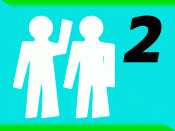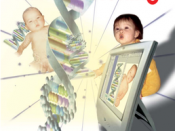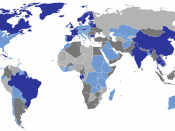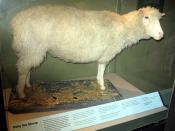To Clone or Not to Clone By Stephanie Liboiron October 20, 2001 Cloning has been a very controversial topic since it affects moral values of human beings and other living things alike. Scientists and ethicists have debated the implications of human and non-human cloning extensively since 1997 when scientists at the Roslin Institute in Scotland produced Dolly, a sheep, who is considered to be the first animal successfully cloned. Discovering cloning has been both beneficial and harmful to society. Since then extensive experiments and studies are being carried out all over the world. Obviously there are many aspects to cloning including: possible medical uses, combining animals and humans, and the cloning of embryos.
In the field of medicine, cloning could have practical applications. DNA from a patient who needs an organ transplant could be extracted and used in the cloning of a new organ, in which the possibility of rejection would be slim.
Genetic defects in infants could be prevented by testing the still-developing egg for possible mutations in DNA, and then injecting a genetic solution to change it. As desirable as this all sounds, what would happen to the already over- populated world if people were living for an extra ten or twenty years? Although the theory of all these medical marvels sounds appealing, the possibility of inter-specie cloning can only be the next step.
It has often been proposed that if animals and humans could come together with each its own contributions , some of today's most deadliest diseases could be abolished. By taking genes from humans with necessary proteins and including them in the animal DNA, they would in turn produce that protein in their milk and blood. Expertly, the protein would be extracted and used in the various treatment of human disorders such as AIDS. And if humans were to carry non- human transgenic genes, would that alter our definitions and treatment of them? (Kluger, 50) Interchanging human and animal genes may work in perfect circumstances, but who can be sure that no underlying disease or mutation are also being passed along, especially to babies who are already incredibly weak.
When cloning is involved with embryo's, they are at a stage in which their genetic make- up can still be altered. Things such as: eye color, hair color, height, and athletic ability can be chosen, as though you were ordering from a catalog. Even Ian Whilmut, one of the scientists accredited with the cloning phenomenon at the Roslin Institute agrees, "the more you interfere with reproduction, the more danger there is of things going wrong." Psychologically, cloned human children will be harmed, with a loss of identity, sense of uniqueness, and individuality. Cloning is morally wrong and does not respect that humans are taught to believe that each one is unique.
Though there are many scientific possibilities on the horizon dealing with medical uses, animal, and embryo cloning, and its best left to be read about in works of fiction. Ethically and morally, the implications of cloning are such that it would be wrong of the human race to support or advocate it. Anything can happen. The sheer loss of life that is bound to occur in humans and non-humans is enough to prove that cloning would be a foolish endeavor, whatever the course.





